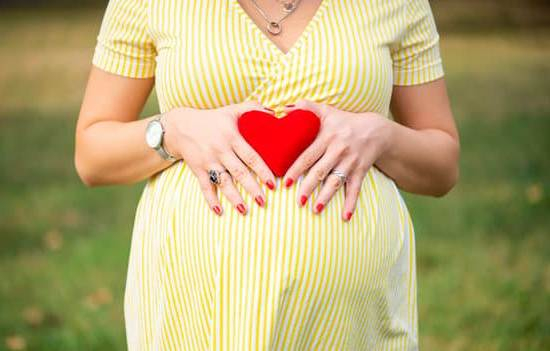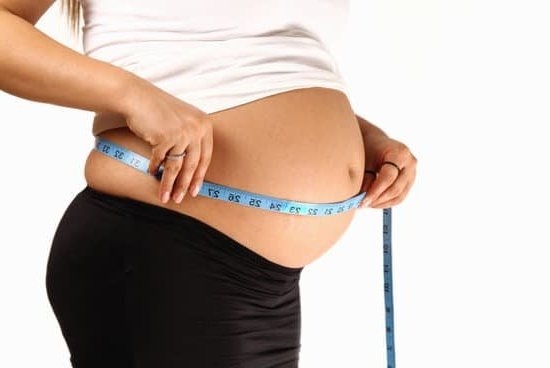Is Vomiting A Symptom Of Pregnancy
?
Many women wonder whether vomiting is a symptom of pregnancy. In fact, morning sickness is one of the most common symptoms of early pregnancy. Up to 75% of pregnant women experience morning sickness to some degree.
Morning sickness usually begins around the sixth week of pregnancy and peaks around the ninth week. It usually resolves by the fourteenth week of pregnancy. However, for some women it lasts throughout pregnancy.
The cause of morning sickness is not known, but it may be related to the high levels of hormones that occur during early pregnancy. Hormones may cause the stomach to empty more slowly, leading to nausea and vomiting.
If you are pregnant and are experiencing vomiting, be sure to drink plenty of fluids and eat light, bland foods. If the vomiting is severe, see your doctor.
Pregnancy Stomach Symptoms
Pregnancy is an amazing time in a woman’s life, but it can also be a time of great discomfort. One of the most common complaints of pregnant women is stomach symptoms. While these symptoms can vary from woman to woman, there are some common ones that you may experience.
The most common symptom of pregnancy is nausea. This can start as early as the first few weeks of pregnancy and can last throughout the entire pregnancy. For some women, the nausea is mild, while others find it to be quite severe. Unfortunately, there is not much that can be done to alleviate this symptom, but it usually goes away after the first trimester.
Another common stomach symptom of pregnancy is vomiting. This can also start early on and can last throughout the entire pregnancy. Like nausea, there is not much that can be done to prevent it, but it usually goes away after the first trimester.
Another common complaint of pregnant women is constipation. This is caused by the increase in progesterone levels during pregnancy. To help relieve this, you should drink plenty of water, eat high-fiber foods, and exercise regularly.
You may also experience heartburn during pregnancy. This is caused by the hormone relaxin, which causes the muscles in the esophagus to relax. This allows stomach acid to flow back up into the esophagus, causing the burning sensation known as heartburn. To help relieve this, you should eat smaller meals, avoid spicy and fatty foods, and drink plenty of water.
Another common pregnancy stomach symptom is bloating. This is caused by the increase in the production of estrogen and progesterone. To help relieve this, you should drink plenty of water and eat high-fiber foods.
If you are experiencing any of these stomach symptoms during pregnancy, be sure to talk to your doctor. He or she can help you to find relief and can answer any questions that you may have.
Pregnancy Symptoms Disappear At 5 Weeks
There is a lot of discussion out there on the web about pregnancy symptoms and when they disappear. A lot of women wonder if their symptoms are disappearing because they are no longer pregnant or if they are just going away because they are getting closer to their due date. The reality is that many women’s symptoms disappear at around 5 weeks of pregnancy.
There are a few different reasons for this. The first reason is that many of the symptoms that women experience during early pregnancy are actually just symptoms of early pregnancy hormones. These hormones can cause things like nausea, fatigue, and mood swings. As the pregnancy progresses, the body produces more of these hormones and the symptoms tend to disappear.
The second reason is that many of the symptoms that women experience during early pregnancy are actually just symptoms of pregnancy-related changes in their body. For example, many women experience changes in their appetite or their energy levels. As the body gets used to the changes that are happening, the symptoms usually disappear.
The third reason is that many of the symptoms that women experience during early pregnancy are actually just symptoms of the excitement and anticipation of being pregnant. Once the reality of being pregnant sets in, the symptoms usually disappear.
So, if you are wondering if your symptoms are disappearing because you are no longer pregnant or because you are getting closer to your due date, the answer is that it is probably because they are disappearing because you are getting closer to your due date. However, many women’s symptoms do disappear at around 5 weeks of pregnancy.
Early Pregnancy Symptoms Vs Pms
Symptoms
The early weeks of pregnancy can be confusing because many of the symptoms are the same as premenstrual syndrome (PMS). It’s important to know the difference, because some of the symptoms of early pregnancy, such as nausea and fatigue, can be a sign that the baby is developing well.
The following are some of the most common early pregnancy symptoms:
• Nausea and vomiting – This is caused by the hormone human chorionic gonadotropin (hCG), which is produced by the placenta.
• Fatigue – This is also caused by the hormone hCG, as well as the extra work the body is doing to support the growth of the baby.
• Frequent urination – This is caused by the increase in the hormone progesterone, which causes the kidneys to work harder.
• Dizziness – This is caused by the extra blood flow to the pregnant woman’s body.
• Breast tenderness – This is caused by the hormone prolactin, which is responsible for milk production.
The following are some of the most common PMS symptoms:
• Bloating – This is caused by the hormone progesterone, which is increased just before ovulation.
• Mood swings – This is caused by the hormone progesterone, which is increased just before ovulation.
• Fatigue – This is caused by the hormone progesterone, which is increased just before ovulation.
• Headaches – This is caused by the hormone progesterone, which is increased just before ovulation.
• Sinus congestion – This is caused by the hormone progesterone, which is increased just before ovulation.
• Swollen breasts – This is caused by the hormone progesterone, which is increased just before ovulation.
• Constipation – This is caused by the hormone progesterone, which is increased just before ovulation.
The best way to tell the difference between early pregnancy symptoms and PMS symptoms is to keep track of your symptoms for a few months. If you are trying to get pregnant, track your ovulation by using a fertility monitor or by tracking your basal body temperature. Once you know when you ovulate, you can start to look for the early signs of pregnancy, such as nausea, fatigue, and breast tenderness.
Pregnancy Symptoms 10 Weeks
The tenth week of pregnancy is a significant milestone, as it is often around this time that a woman’s first ultrasound is performed. This ultrasound can provide expectant parents with their first glimpse of their baby and also reveal the baby’s sex.
Other notable developments this week include the baby’s increasing size and the formation of the baby’s eyelashes and eyebrows. The baby’s brain is also growing rapidly, and the baby’s heart is now pumping blood around its body.
The tenth week of pregnancy is also a time when many women start to experience pregnancy symptoms. These can include nausea, vomiting, fatigue, and mood swings. While these symptoms can be unpleasant, they are usually a sign that the baby is doing well.
If you are pregnant, it is important to remember that each woman’s experience of pregnancy is different. If you are experiencing any unusual symptoms, it is important to consult your doctor.

Welcome to my fertility blog. This is a space where I will be sharing my experiences as I navigate through the world of fertility treatments, as well as provide information and resources about fertility and pregnancy.





